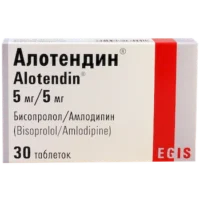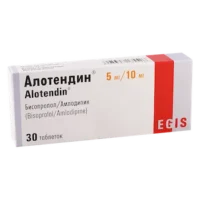Description
Lipril 5 (Lisinopril) Tablets 5 mg. №30
Ingredients
- Active ingredient: Lisinopril 5 mg per tablet.
Dosage
- Recommended dosage: Take one tablet daily, or as directed by a healthcare professional.
Indications
- Lipril 5 (Lisinopril) tablets 5 mg are indicated for the treatment of hypertension (high blood pressure) in adults and pediatric patients 6 years of age and older.
Contraindications
- Do not use Lipril 5 tablets if you:
- Are allergic to Lisinopril or any other ACE inhibitors.
- Have a history of angioedema related to previous ACE inhibitor therapy.
- Are pregnant, as it can cause harm to the unborn baby.
Directions
- Swallow the tablet whole with a glass of water. It can be taken with or without food. Follow the instructions provided by your healthcare provider for the best results.
Scientific Evidence
- Lipril 5 (Lisinopril) tablets 5 mg have been extensively studied in clinical trials. Research has shown that Lisinopril effectively lowers blood pressure by inhibiting the angiotensin-converting enzyme (ACE), leading to vasodilation and reduced peripheral resistance.
Additional Information
- Storage: Store Lipril 5 tablets at room temperature away from moisture and heat. Keep out of reach of children.
Pharmacologically, Lisinopril works by suppressing the renin-angiotensin-aldosterone system, leading to vasodilation and decreased sodium retention, ultimately reducing blood pressure. This mechanism of action makes it a valuable medication in the management of hypertension.
Clinical trials have demonstrated the efficacy of Lisinopril in reducing cardiovascular events and mortality rates in patients with heart failure and post-myocardial infarction. The drug’s ability to improve outcomes in these high-risk populations highlights its importance in cardiovascular medicine.





